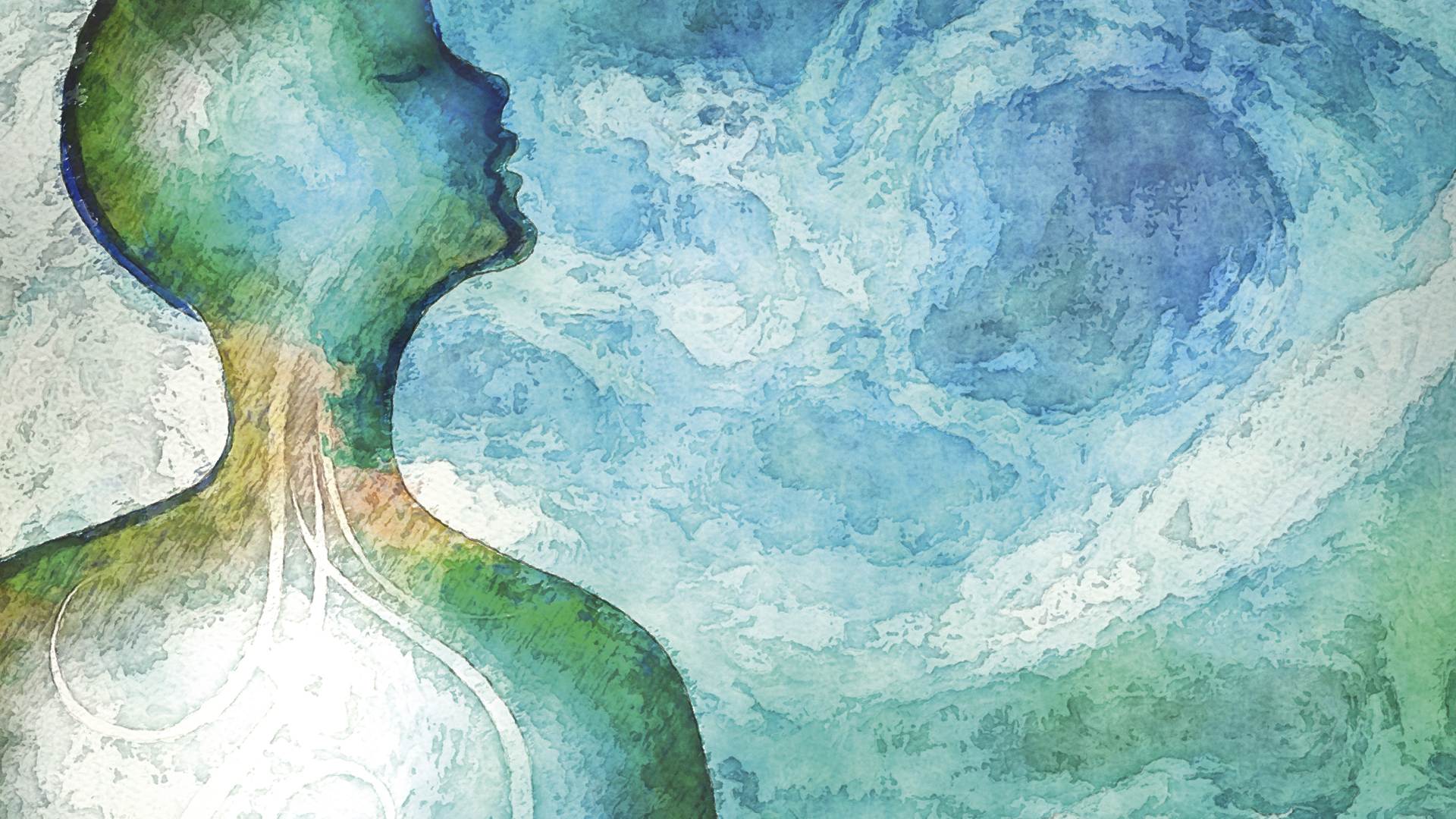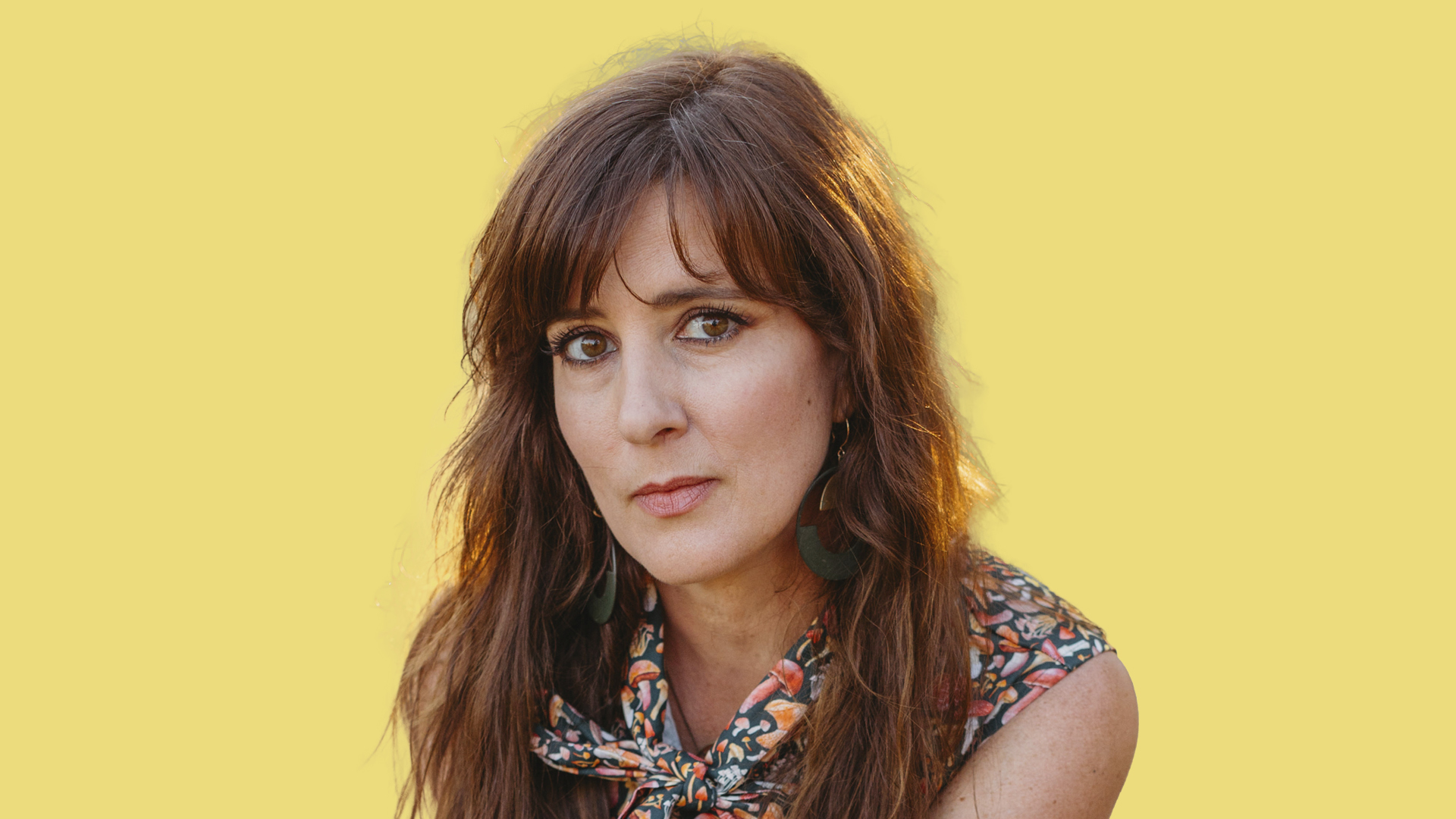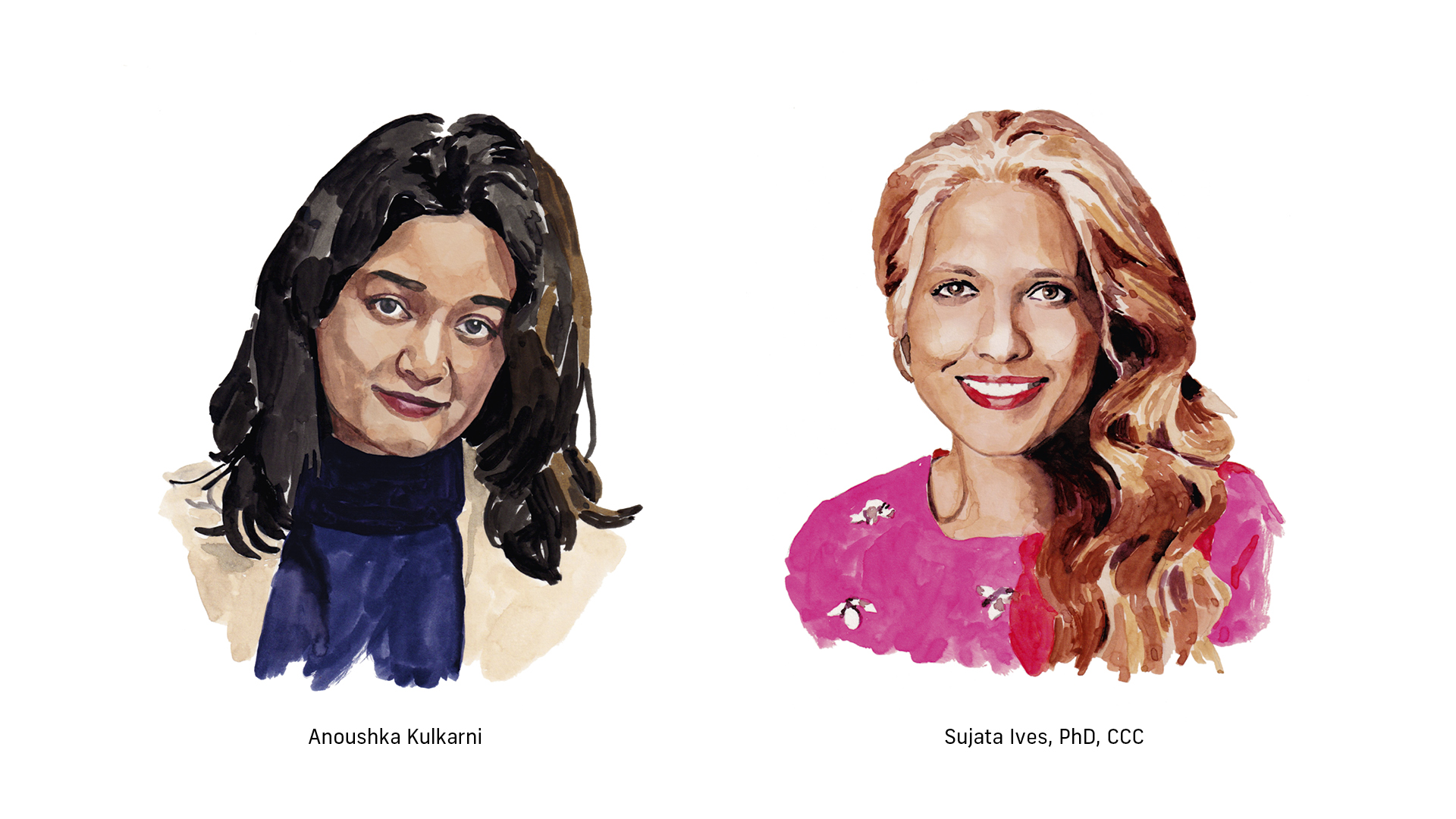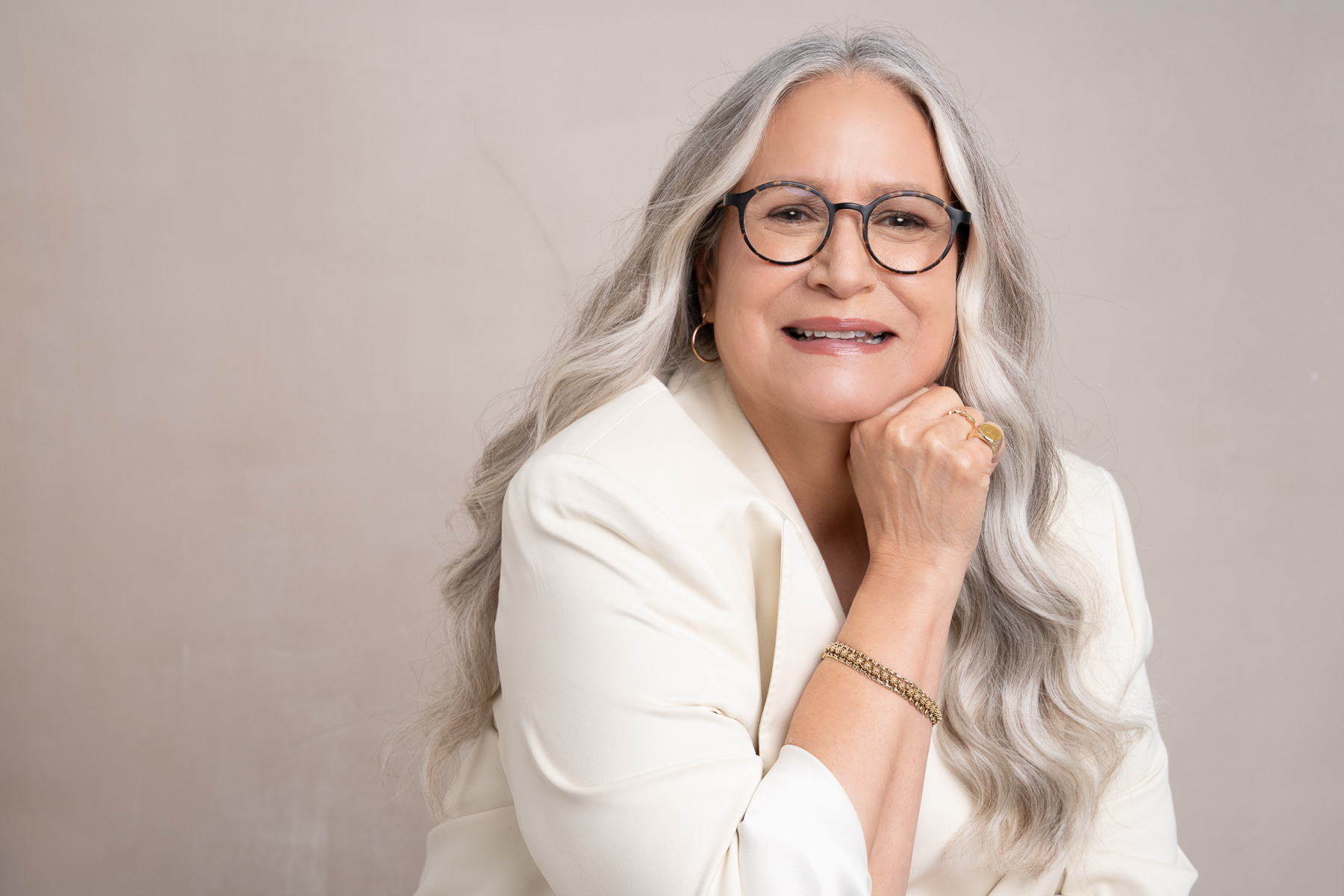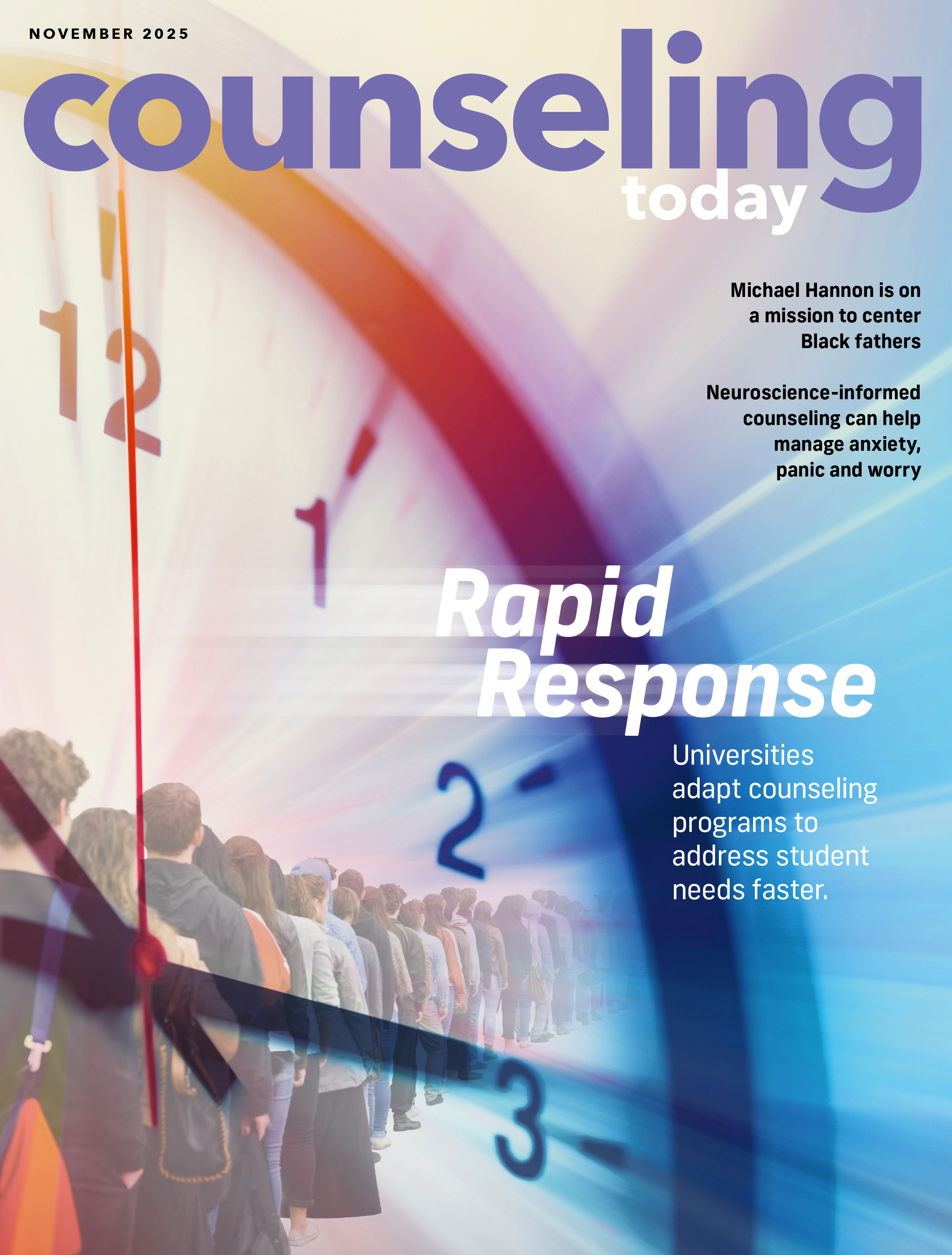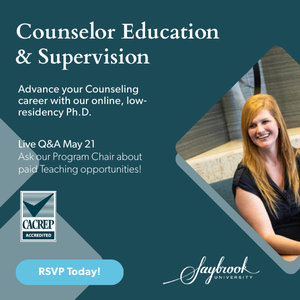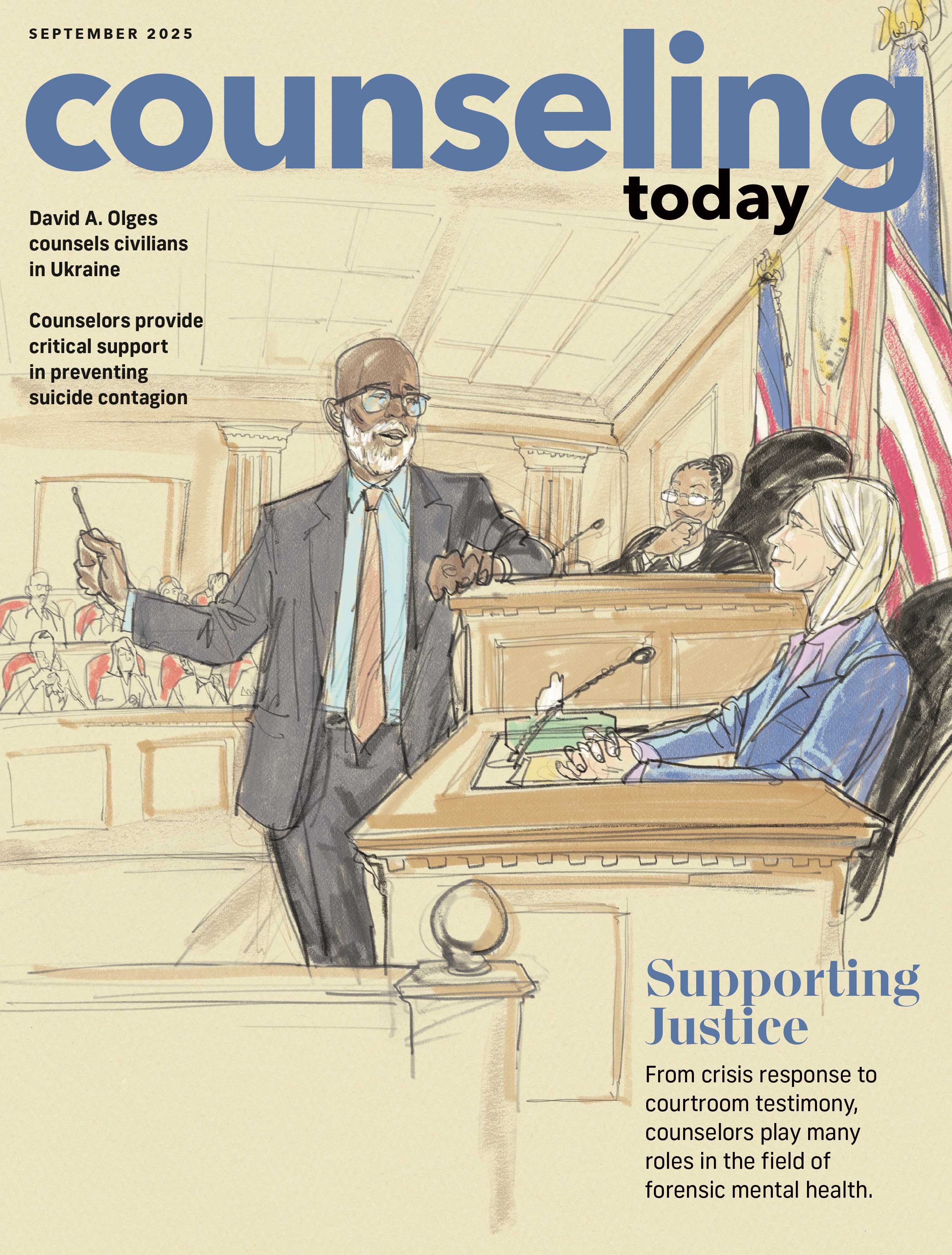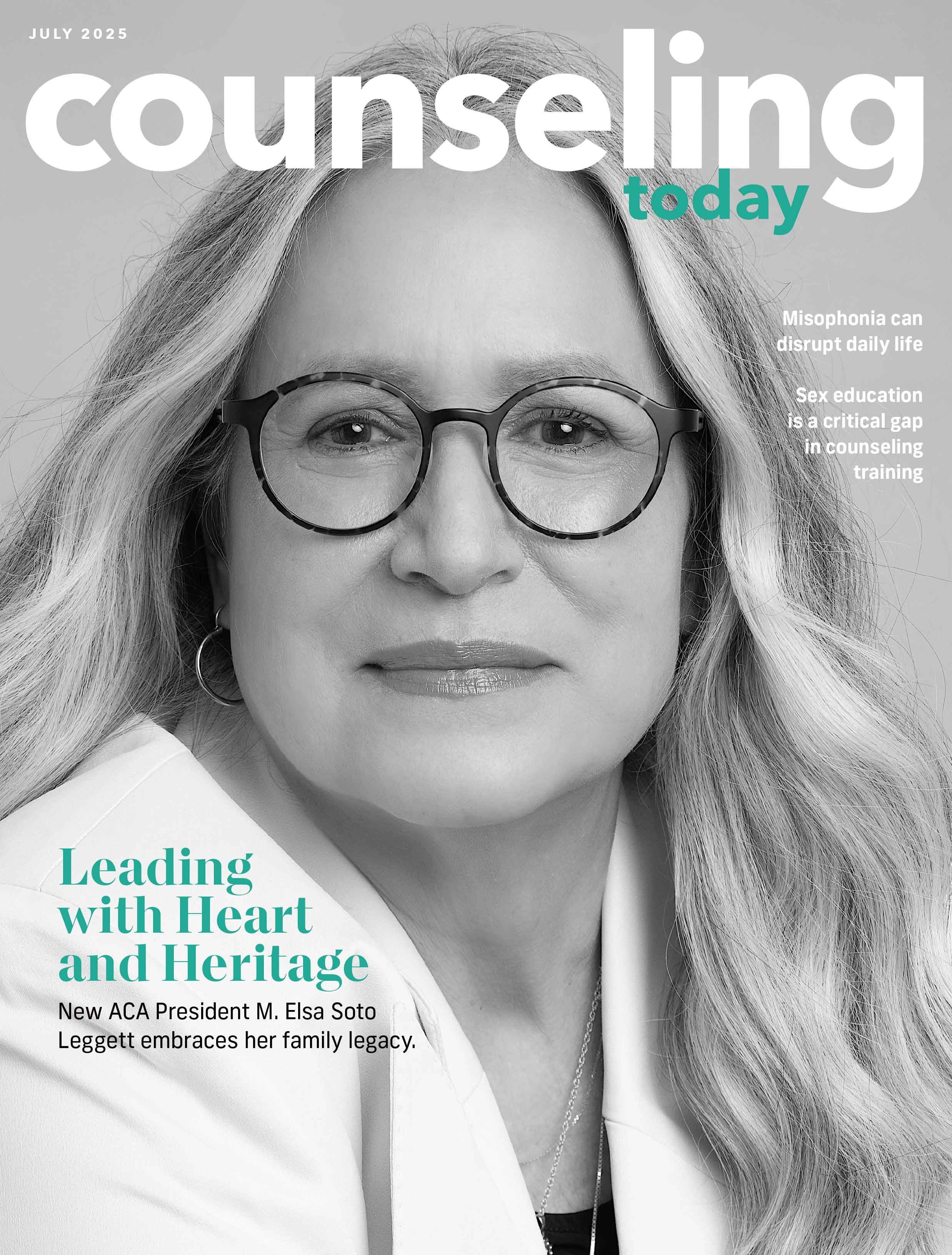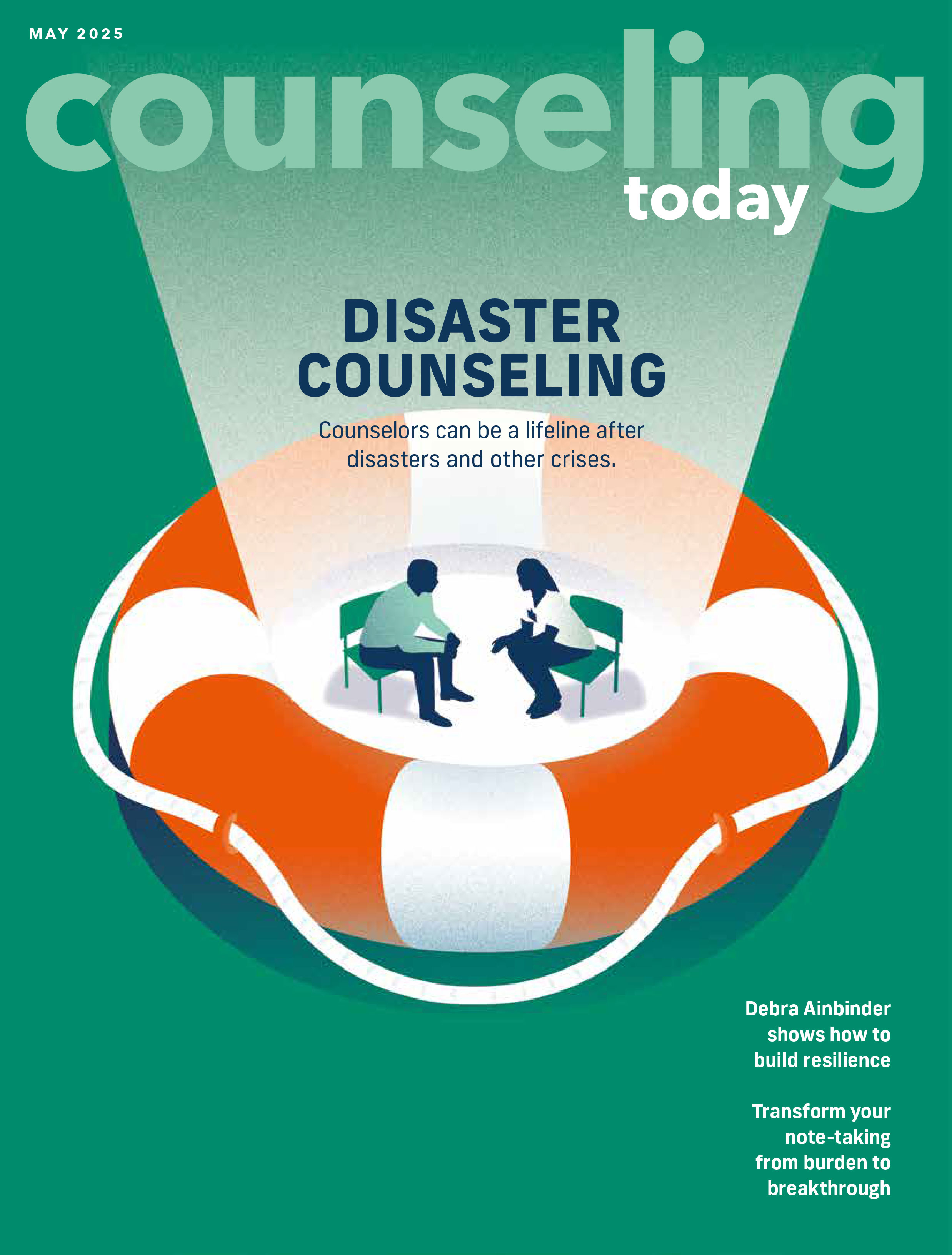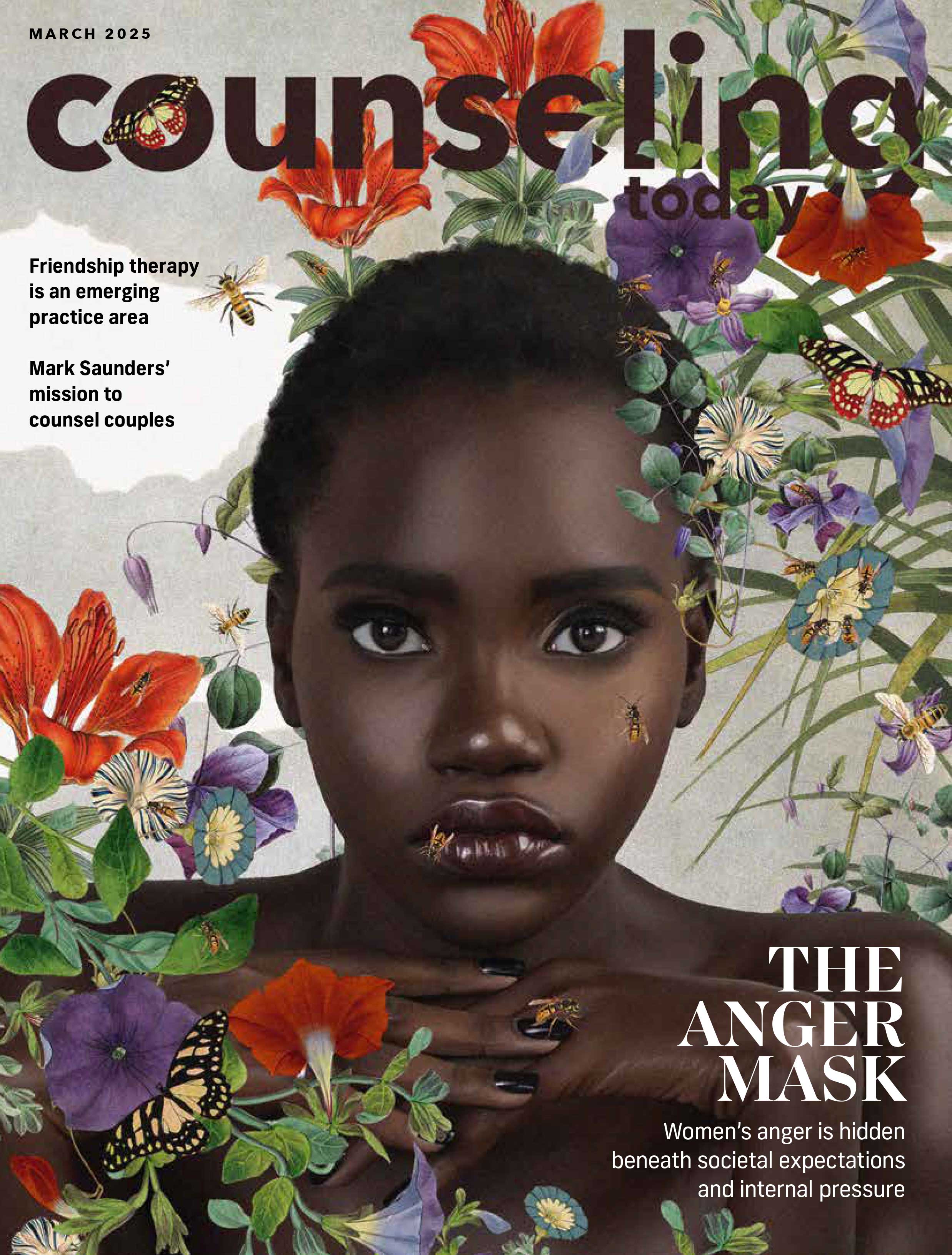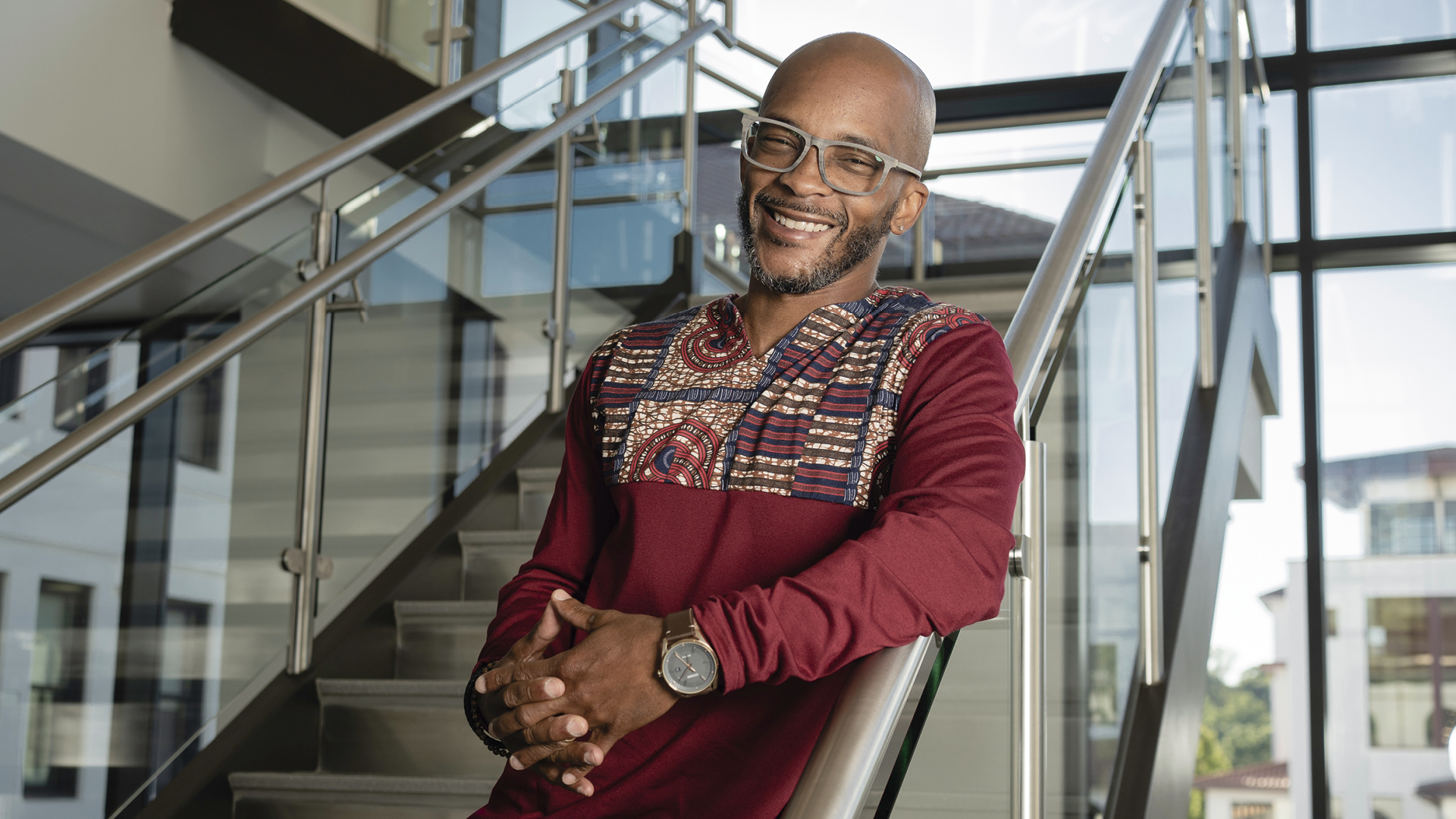
Strength of a Father
Michael Hannon is on a mission to center Black fathers.
Counseling Today Member Blog
By Suzanne Whitehead, EdD, LMHC, LAC
Experiencing grief is such a shared part of the human experience. Yet, when it happens to us, it often feels like we may be all alone. When my father died in 1978 at age 52, I was heartbroken. I thought I could “wait out” my grief, and when enough time had passed, the nightmares of him being so ill with cancer and the heartache of knowing that he missed seeing his first grandchild born by only one month later would stop, and I would be OK. I waited and waited and waited, but that day never came. It wasn’t until a year later that I realized this grief was my new reality.
In 2022, I experienced this grief again when my precious mother, who was 96 years young, passed away. To be honest, it gave me little solace when well-meaning colleagues or friends said, “Well, she lived a long, good life.” The implication being, she’s lived long enough, much more so than many less fortunate. For her, for us, it was not enough. I often sat with her, mesmerized by her resilience, tenacity and utmost fervor in wanting to live. Death is such a cruel and unforgiving end.
Grief is Personal
As counselors, we give so much of ourselves to others. It is part of the very essence and soul of who we are and how we have chosen to traverse this great planet of ours. When a counselor is wounded, however, it becomes a bit harder to always be there for others. We still do, but we may catch ourselves needing some extra moments to collect our thoughts to be present for our clients.
Many mental health professional organizations, including ACA, continually stress the importance of self-care. In fact, we all know it is a moral and ethical imperative to do so. But what does that look like when a counselor is experiencing long-term grief? When are we “fully ready” to be present again with our clients?
These may be rhetorical questions, as there is no one answer. You are the only person who truly knows what you are experiencing and when you are ready to be fully present again. Being emotionally wounded, however, puts us in a difficult place to judge our own readiness to counsel others.
Life presses on with or without us; we have job responsibilities to fulfill, family members to attend to, and colleagues and friends to be with. So even when our hearts are breaking, we must find the courage to go on. We have all experienced grief in our lifetimes; it is inevitable. And how we choose to cope and deal with grief is very personal. Deciding when you feel you are healed enough to be there for others is also very personal.
What helped me get through my mother’s more recent passing was a fervent belief in my faith, knowing that I will definitely see her again. I also had lots of wonderful support during this time. After her cremation, we had a local remembrance ceremony, filled with family, loved ones, friends, colleagues and my students. Their support and being able to share my grief and cherished memories with them meant everything. Six weeks later, we flew with my mother’s ashes to Virginia to be buried with my father (her last wish), and old friends and relatives who lived on the East Coast came to give my dear mother a loving farewell. All the love and kindness that poured in my direction gave me the solace to move forward. I slowly felt in my heart that I could return to being a professor. I was still wounded, but now I had an even greater understanding of this universal phenomenon called grief.
What Grief Taught Me
Experiencing the loss of my parents taught me a lot about grief and how we process it as counselors. Here are a few lessons I learned:
- Be kind to yourself. It is truly OK to shed a tear when you need to. I’ve learned to have more compassion for myself, just as I would for any of my clients or students who are experiencing grief. I’ve also learned to forgive myself for not always being the strong one, the one who is often there for others and the one who seems to have all the answers. I’ve learned to metaphorically hug myself during my darkest moments, and that it is OK to take a step back, without having to explain yourself, and to not feel bad about that. As a counselor, the toughest part is having to be there for everyone else while also balancing the need to be there for yourself. This has to come without regret, self-recrimination and embarrassment.
- Find joy in life. I gained a new understanding of the expression “life is short.” I have always known this is true in my head, but now I feel it in my heart. I now enjoy life even in the smallest, most trivial moments. Sharing a cup of coffee with a friend, receiving a phone call from a relative and appreciating the time I spend with loved ones have all taken on a deeper meaning.
- Trust your gut. Pay attention to your inner “uh-oh” feelings that tell you something is off or you need to take a break (be it minutes, hours or days). Realize you are stronger when you understand and honor your needs, instead of brushing them off.
- Accept that grief is a natural part of the human experience. Don’t avoid or ignore the pain and sorrow you feel; accepting you are feeling pain can help you learn to recognize and process it as you move forward. I now understand the fallacy in hoping that my grief after my father’s death would somehow just subside on its own. Grief is just another part of the human condition, and while its intensity may subside a bit over time, it will always be with us, in part.
- Remember you are human too. As counselors, we need to be brave and thankful for the clinical knowledge we have of the human spirit and of our behavioral and emotional needs as human beings. We also understand that we have the will to keep going despite our sorrow. Our training as counselors helps us to comprehend and internalize this more fully. We must also remember that we, too, are just human, with all our frailties, inconsistencies, complications and uniqueness. And that is truly OK.
No matter what stage of your grief journey you are in, please give yourself many metaphorical hugs because you are definitely deserving and worth it! I wish you all peace, the greatest gift.
Suzanne Whitehead, EdD, LMHC, LAC, is a professor, the coordinator of the counselor education program, the advanced studies department chair, and the Graduate Council Chair at California State University, Stanislaus, and a retired school counselor/director of guidance.
Note: Opinions expressed and statements made in this blog do not necessarily represent the policies or opinions of ACA and its editors.
Online Exclusives
-
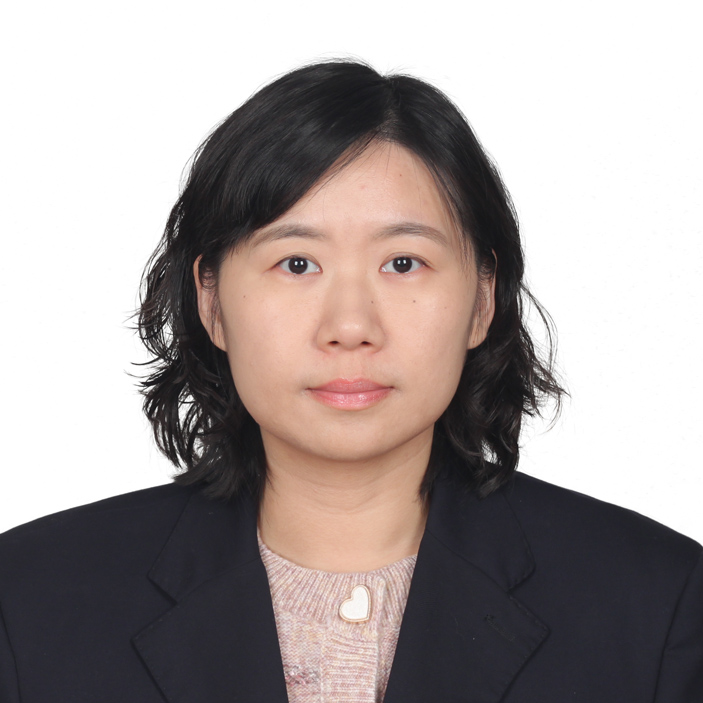 Grand Prize Essay Explores Responsibility in Artificial IntelligenceDecember 2025
Grand Prize Essay Explores Responsibility in Artificial IntelligenceDecember 2025The Tomorrow’s Counselors Essay Competition recognizes graduate counseling students with exceptional insight and understanding about the counseling profession.
-
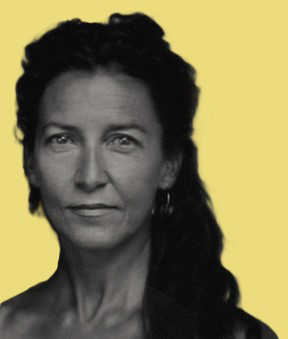 Grand Prize Essay Discusses Mental Health Challenges Among StudentsDecember 2025
Grand Prize Essay Discusses Mental Health Challenges Among StudentsDecember 2025The ACA Future School Counselors Essay Competition, part of the annual ACA Awards, recognizes graduate counseling students with exceptional insight and understanding about the school counseling profession.
Tags: -
 The Myths (and Truths) of Human TraffickingJuly 2025 |By Samantha Cooper, Staff Writer
The Myths (and Truths) of Human TraffickingJuly 2025 |By Samantha Cooper, Staff WriterUnderstanding the reality of human trafficking makes it easier to help the victims.
Search CT Articles
Sign Up for Updates
Keep up to date on the latest in counseling practice. Sign up to receive email updates from Counseling Today.
CT on YouTube
Download Recent Issues
ACA members receive access to past full issues of Counseling Today. Log in to download copies from the archive.

